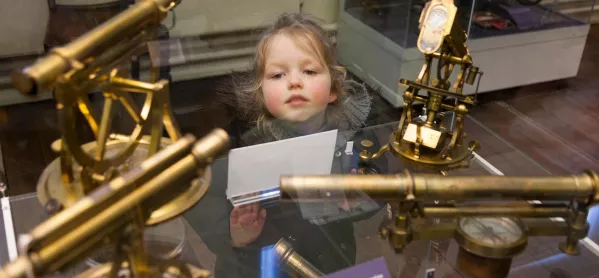From September 2019, the new Ofsted Education Inspection Framework came into effect, bringing with it a focus on “cultural capital”.
The watchdog defines this as the “essential knowledge that children need to prepare for their future success” and highlights the importance of developing it in children from disadvantaged backgrounds in order for them to be able to achieve and thrive.
It reports that “some children arrive at an early years setting with different experiences from others in their learning and play”.
Quick read: Ofsted, social mobility and the cultural capital mix-up
Quick listen: Is it a school’s job to prepare pupils for work?
Want to know more? Caped crusader’s mission to promote kindness in schools
The term “cultural capital” was popularised by the French sociologist Pierre Bourdieu, who proposed that it refers to everything from tastes to manners, knowledge of the arts, economy, the world, communication skills and social skills. The more cultural capital a person has, the greater their chance of social mobility.
But how can you inspire it in your classroom? Here are some ideas:
Work on words
We know that by the age of 3 children from wealthier families have typically heard 30 million more words than children from disadvantaged backgrounds - these children can have a six-month language gap by the age of 18 months.
You can reduce this gap by introducing new language every day. Never shy away from using new words because you’re worried children won’t understand them. Invest yourself conversations and enjoy quality interactions with children.
Use positional and ordinal language during play and get children used to asking questions. Create schemas of language by introducing as many new banks of words relating to each topic as possible.
Address gaps
Play is the best time to address language and social skill gaps. Plan activities and enhancements that offer opportunities for new language. Model play to teach new social skills such as sharing, listening to each other and negotiating without conflict.
Model language such as “please”, “you’re welcome” and “thank you”. Challenge children to develop their language and social competence in every interaction you have.
Encourage aspiration
A key element of social mobility is having aspirations. Make your classroom an aspirational one. Celebrate achievements daily.
Show children what careers are out there by introducing different role play areas, going on local walks or inviting people in to talk about their jobs. Ensure that you address any “I couldn’t do that because…” assumptions.
Enjoy the arts
Explore music from every country and in every style. Sing nursery rhymes; not just the popular ones, but some of those long-forgotten ones, too. Make music and play with instruments. Learn about artists and artistic styles. Explore poetry and rhyme. Learn about different styles of dance and try them all out. An excellent way to explore the arts in more depth is through the Reggio Emilia 100 Languages approach.
Create a world of wonder
Ofsted states that cultural capital should include experiencing the “awe and wonder” of the world we live in. Push children’s knowledge and understanding further by exploring every season to its fullest.
Thrive in the outdoors by playing out in all weathers and embracing weather-related play and seasonal changes. Don’t just learn about the superficial parts of growth and decay or life-cycles.
Dig deep and introduce some tricky scientific language and experiments. Really embed the urge to want to learn more.
How many of those things were you already doing? A lot, I bet. So when you are asked how you are supporting cultural capital in your classroom go ahead confidently and show off exactly what you do.
Dulcinea Norton is an early years teacher from Lancashire. She blogs at magicalmess.weebly.com

